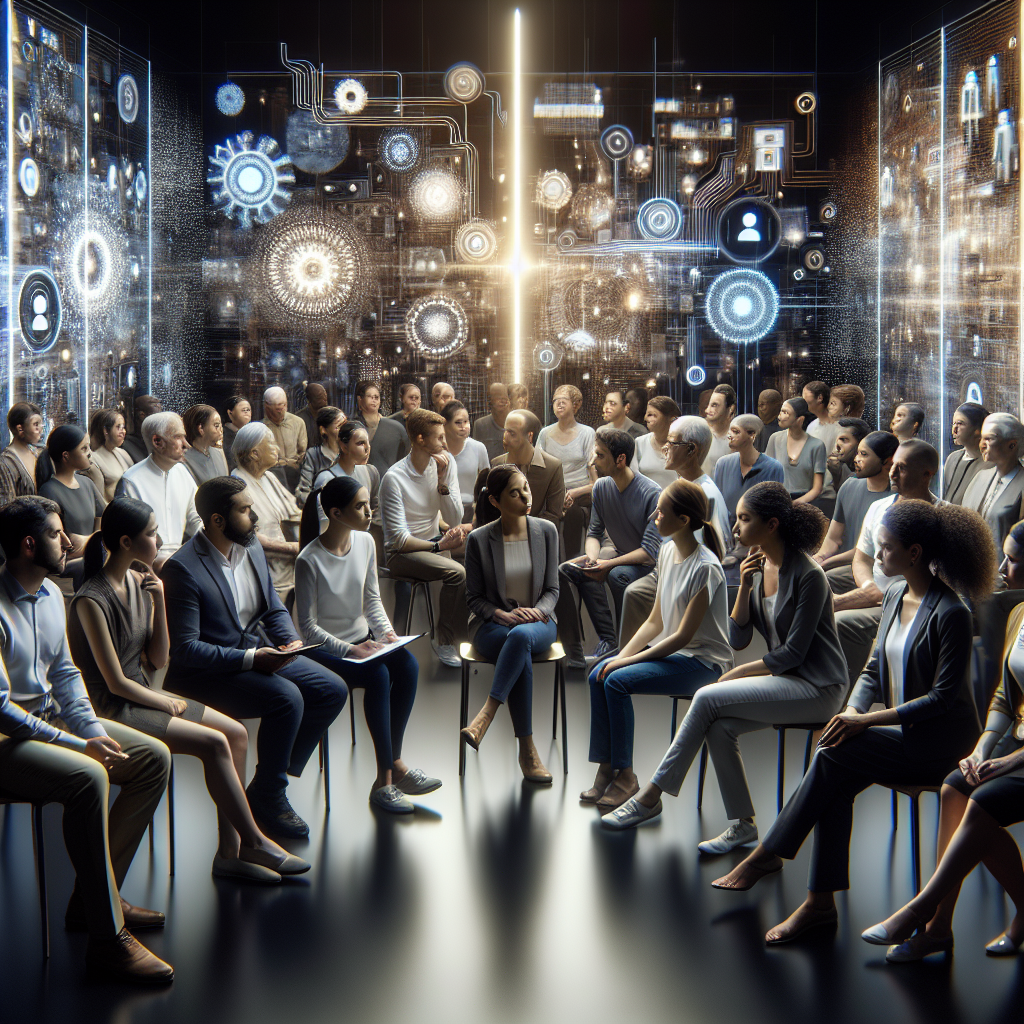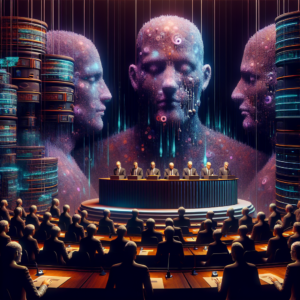How the U.S. Public and AI Experts View Artificial Intelligence – Pew Research Center
Artificial Intelligence (AI) is no longer a concept reserved for science fiction; it has become an integral part of our daily lives, influencing various sectors from healthcare to finance. As AI technology continues to advance, understanding public perception and expert opinions becomes crucial in guiding its development and policy formulation. The Pew Research Center recently published a comprehensive report that sheds light on how the U.S. public and AI experts view this evolving technology.
Public Perception of AI
According to the Pew Research Center, the public’s attitude towards artificial intelligence is decidedly mixed. Many individuals see the potential benefits of AI, but there are also significant concerns regarding its implications.
Key Findings:
1. Optimism About AI: A sizable portion of the population acknowledges the positive effects of AI. They believe that AI can lead to improved productivity, enhanced services, and even breakthroughs in scientific research. Many individuals anticipate that AI will create new job opportunities and contribute to economic growth.
2. Concerns About Job Displacement: Despite the optimism, there is a prevailing fear that AI will lead to job losses. Nearly half of those surveyed expressed concern that automation could replace their jobs or the jobs of people they know. This apprehension highlights the need for responsible AI deployment that considers workforce impacts.
3. Ethical Considerations: Ethical concerns are paramount among the public. Issues such as data privacy, algorithmic bias, and accountability in AI systems are frequently raised. Many people are unsure about who should be held accountable when AI systems fail or cause harm.
4. Trust in AI: Trust in AI systems varies greatly among different demographic groups. Younger individuals and tech-savvy people tend to express more confidence in AI than older generations. This generational gap indicates the influence of familiarity and understanding in shaping perceptions.
Expert Perspectives on AI
In contrast to the general public, AI experts tend to have a more nuanced understanding of the technology. Their insights reflect both the advancements in AI and the ethical implications of its use.
Key Insights from Experts:
1. Recognition of AI’s Potential: AI experts generally agree on the transformative potential of AI across various industries. They highlight advancements in machine learning, natural language processing, and computer vision as areas that can significantly benefit society.
2. Focus on Ethics and Governance: Unlike the general public, experts emphasize the importance of establishing ethical frameworks for AI development. They advocate for policies that prioritize transparency, fairness, and accountability in AI systems to mitigate potential risks.
3. Need for Collaboration: Experts recognize that addressing the challenges posed by AI requires collaboration across different sectors, including government, industry, and academia. Establishing multidisciplinary teams can lead to more comprehensive solutions that consider diverse perspectives.
4. Uncertainty About Future Developments: While experts are optimistic about AI’s potential, there is a shared concern regarding the unpredictability of its future trajectory. The rapid pace of technological advancements makes it difficult to foresee the long-term effects of AI on society.
Bridging the Gap Between Public and Expert Opinions
The differing perspectives between the general public and AI experts underscore the need for effective communication and education on AI-related topics. Bridging this gap can help foster a more informed public discourse about AI.
Strategies for Bridging the Gap:
1. Public Education Initiatives: Programs aimed at educating the public about AI can help demystify the technology. Workshops, seminars, and online courses can provide insights into how AI works and its potential applications.
2. Engagement with Stakeholders: Engaging various stakeholders, including policymakers, industry leaders, and community organizations, is crucial for developing a comprehensive understanding of AI’s implications. Collaborative efforts can lead to more inclusive policies.
3. Transparency in AI Development: AI companies should prioritize transparency in their operations. Sharing information about AI systems’ decision-making processes can build trust and alleviate public concerns regarding biases and ethical issues.
4. Encouraging Dialogue: Facilitating ongoing dialogues between experts and the public can create a mutual understanding of AI’s benefits and risks. Town hall meetings, panel discussions, and online forums can serve as platforms for such conversations.
The Role of Policymakers
Policymakers play a vital role in shaping the future of AI through regulations and guidelines. Their decisions can significantly impact how AI is implemented across different sectors.
Policy Recommendations:
1. Establishing Regulatory Frameworks: Policymakers should consider creating regulatory frameworks that address ethical concerns, data privacy, and accountability in AI systems. This can help prevent misuse and ensure responsible AI development.
2. Supporting Research and Innovation: Government funding for AI research can drive innovation while ensuring that ethical standards are maintained. Supporting interdisciplinary research can lead to more holistic solutions to AI-related challenges.
3. Promoting Workforce Development: As AI continues to evolve, there is a pressing need for workforce development programs that prepare individuals for the changing job landscape. Upskilling and reskilling initiatives can help alleviate concerns about job displacement.
4. Encouraging International Cooperation: AI technology knows no borders, and international cooperation is essential in addressing global challenges posed by AI. Collaborative efforts can lead to the establishment of global standards and best practices.
Conclusion
The landscape of artificial intelligence is rapidly evolving, and the perspectives of both the public and experts are essential in shaping its future. The Pew Research Center’s findings reveal a complex relationship between optimism and concern regarding AI. As we move forward, bridging the gap between public perception and expert insight will be paramount in ensuring responsible AI development that benefits society as a whole. Collaboration, transparency, and ongoing dialogue will be the keys to navigating the challenges and opportunities that AI presents. By fostering a deeper understanding of AI among the public and policymakers alike, we can harness its potential while addressing the ethical considerations that accompany its advancement.



